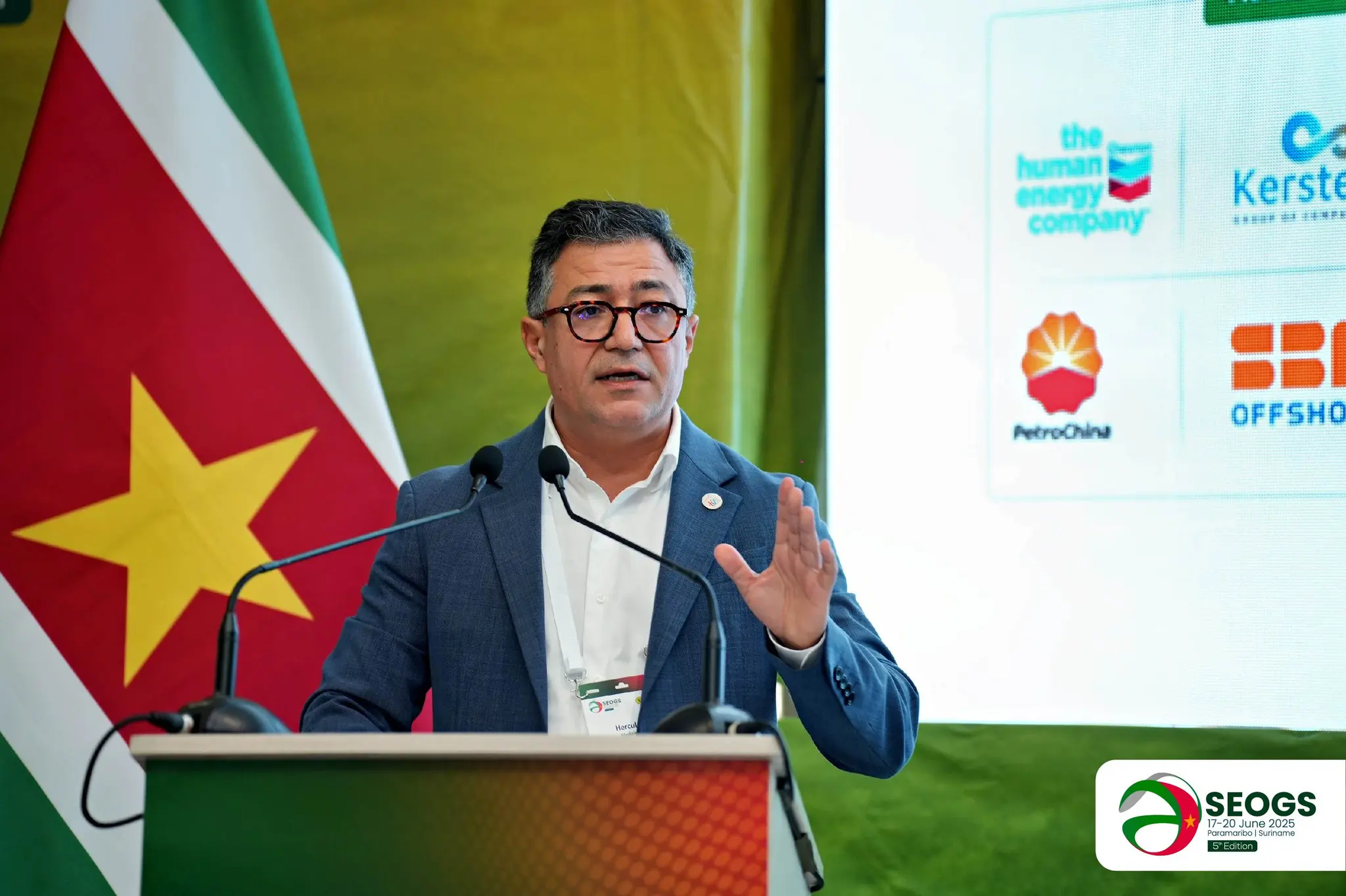TotalEnergies has completed an Industrial Baseline Study (IBS) in Suriname to assess the country’s local supply chain capabilities. The company’s Local Content Program, currently in development, is built on the insights of this study.
“This study gives us the opportunity to understand the local ecosystems in terms of supply chain,” said Hercules Medeiros of TotalEnergies E&P Suriname during his presentation at the Suriname Energy Oil and Gas Summit (SEOGS).
The six-month IBS identified 45 supply chains already present in Suriname. “We are not starting from scratch,” Medeiros noted, highlighting that several sectors have already been developed by local companies. He said that the IBS is not only a knowledge tool, but a practical guide. “That’s why we are now developing these global content programs that will produce all the results.”
GranMorgu FPSO: A closer look at the vessel powering Suriname’s first offshore oil project | OilNOW
The study divides findings into two parts: sector-specific insights (like construction and production) and the potential requirements to support direct local impact and shared national wealth. Medeiros pointed to a concrete shift in operations: “When we started exploration in Suriname, all the logistics were done outside. Nowadays, we are doing all the logistics locally with a partnership with a local company.”
To implement the results, three pillars are being developed: stakeholder engagement, governance mechanisms and supply chain management and performance tracking. “We are looking forward to launch at least 14 initiatives. Some have already started but are not fully implemented,” he said.
He also stressed the need for proper management: “At the end of the day, how we can manage those results, how we can quantify them, and how we can communicate those results to the public agenda.” Some supply areas are already strong, such as general services and power systems. However, others need support. “Oil and gas maintenance and inspection is one element we need to work more on,” Medeiros said.
Afreximbank COO pitches partnership for Suriname’s SMEs | OilNOW
Vessel support services are another area of concern. “We depend a lot on supply vessels. We need to develop that chain locally, so we don’t need to send these boats outside of the country.”
To guide development, five clusters were established with filters to assess current local capacities. A specific focus is being placed on diaspora engagement. “We want to attract them back… but we need to work closely with the government to implement this in a more sustainable way.” The company is also adapting the Blue Wave training program to develop local capabilities in maintenance, inspection, and certification. Waste management, including cleaning supply vessel tanks, has been added as a new focus.
Medeiros said the target is for locals to make up 10% of the operations team in 2.5 years. “We still have time to prepare them… not only engineers, but technicians and other skills that today you cannot find easily in the country.”



